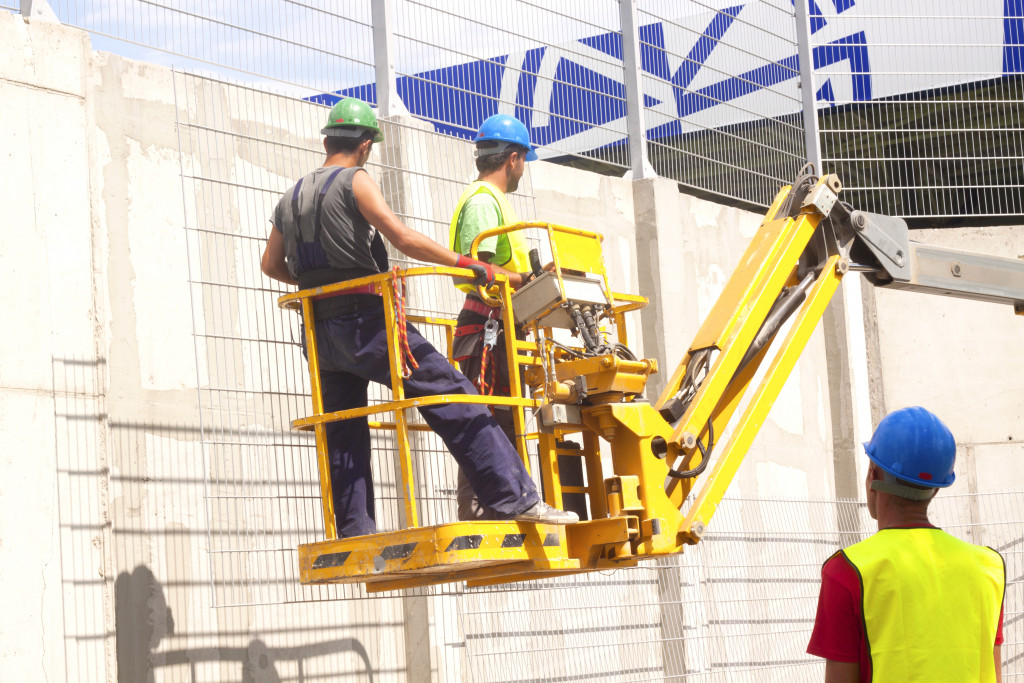- Research the construction industry in your region and define a niche that aligns with your expertise and passion.
- Familiarize yourself with local regulations for business licenses, permits, and certifications (like the CSCS card).
- Invest in quality equipment, hand tools, safety gear, and specialized machinery as needed.
- Develop a comprehensive business plan that outlines your business goals, projected finances, and marketing strategies.
- Prioritize safety, quality and customer satisfaction for long-term success.
The construction industry offers many opportunities for those willing to venture into entrepreneurship. However, like any business, starting a construction firm requires thorough research, dedication, and strategic planning. This guide will shed light on some critical steps to help you lay a strong foundation for your construction enterprise, ensuring that it’s built to last.
1. Understand the Market and Define Your Niche
Before you lay the first brick of your construction business, you need to understand the market deeply. Research the construction industry in your region, identify your potential competitors, and discern your target clientele’s needs.
Once you grasp the market dynamics, pinpoint a niche that aligns with your expertise and passion. Whether it’s residential construction, commercial buildings, or specialized projects like green construction, selecting a niche will help you focus your resources and establish a unique brand identity in a competitive landscape.
2. Secure the Necessary Licenses and Permits

Operating without the proper licenses and permits in the construction industry can land you in legal hot water. This pertains to business licenses, specific construction permits, and licenses that vary depending on the region and the type of projects you undertake.
It’s crucial to familiarize yourself with and adhere to the local regulations. This might involve taking certain courses, passing exams, or proving a specific experience level. Remember, having all your legal paperwork in order ensures that you operate without hindrances and instills confidence in potential clients.
3. Invest in Quality Equipment
The backbone of any construction business lies in its equipment and team. Going for the cheapest options available might be tempting as a startup, but quality should never be compromised. Investing in reliable equipment will reduce long-term costs associated with frequent breakdowns and maintenance.
Here are some of the equipment you may need:
Construction Vehicles
Investing in high-quality construction vehicles is a key consideration when starting a construction business. These include trucks, excavators, loaders, and concrete mixers, which form the backbone of any construction operation. While the initial expense might be high, the return on investment through efficiency, durability, and less downtime makes up for the cost. Additionally, leasing is also an option for start-ups with limited capital.
Hand and Power Tools
Hand and power tools such as hammers, drills, saws, and wrenches are also crucial in every construction project. It’s essential to ensure these tools are of high quality as they directly influence the quality of workmanship. Procuring sturdy and durable tools will lead to less frequent replacements, ultimately saving money in the long run.
Safety Equipment
Safety should be a top priority in any construction business. Investing in quality safety equipment, such as hard hats, safety goggles, high-visibility clothing, and harnesses, can prevent workplace accidents and ensure the well-being of your workers. Moreover, adherence to safety standards can enhance your company’s reputation and reduce potential legal issues.
Specialized Machinery
Depending on your niche, you may need to invest in specialized machinery. Whether it’s cranes for commercial construction or energy-efficient tools for green construction, these specialized tools can enhance job efficiency and set your business apart from competitors. Remember, your equipment choices should align with your chosen niche and the needs of your target client base.
4. Develop a Comprehensive Business Plan

A well-thought-out business plan is a roadmap to your construction company’s success. It should outline your business goals, projected finances, marketing strategies, potential challenges, and solutions.
This document will serve multiple purposes. For one, it will be your reference point, helping you stay on track and make informed decisions. Moreover, if you seek external financing or partnerships, a robust business plan will be indispensable in convincing investors of your business’s viability and potential for growth.
5. Ensure You’re Certified
In the construction world, credibility and safety are paramount. The Construction Skills Certification Scheme (CSCS) is a testament to an individual’s construction skills and knowledge. You can take the CSCS test online and get your card in minutes. Investing in CSCS will boost your professional credibility and help you win bidder contracts.
The beauty of modern technology means that this certification can be easily achieved. Taking the CSCS test online saves time, and with instant processing, you can get your card in minutes. This boosts your credibility and can be a unique selling point, especially when clients choose between multiple contractors.
In Summary
Starting a construction business can be rewarding financially and in terms of the tangible results, your projects will produce. By understanding your market, ensuring legal compliance, investing in quality, planning strategically, and showcasing your commitment to professional standards through certifications like the CSCS, you pave the way for a successful and long-lasting business. As you lay the foundation brick by brick, always prioritize safety, quality, and customer satisfaction — these are the cornerstones of a construction enterprise that stands tall amid competition.
